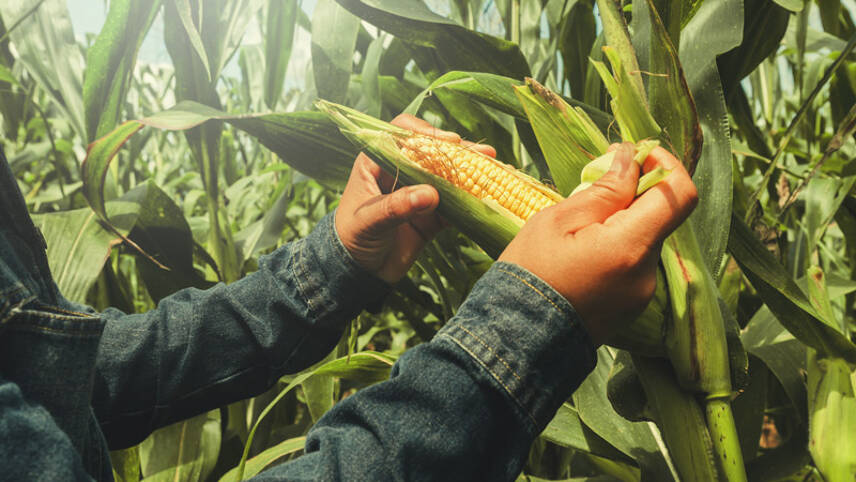Register for free and continue reading
Join our growing army of changemakers and get unlimited access to our premium content

The initiative, called ‘Food and Agriculture for Sustainable Transformation’ (FAST), has been launched today (12 November) to coincide with the adaptation and agriculture-themed day of the COP27 agenda. The crucial climate summit in Sharm El Sheikh is now at the halfway point and it is the first COP to have a day dedicated to agriculture.
This top-level dedication has been welcome, given that agriculture has a major role to play in efforts to improve climate mitigation and adaptation. On mitigation, it is the source of around one-third of global greenhouse gas emissions. On adaptation, the Egyptian government has stated that resilience will need to increase as the global temperature increases and as weather patterns change, with many regions already facing physical climate impacts that have harmed crop yields.
Through FAST, Egypt and the UN are aiming to unite nations under a vision to “transform” agriculture and food systems this decade, aligning them with a 1.5C temperature pathway while also generating benefits for nature, people and the economy. The UN’s Food and Agriculture Organisation (FAO) will act as the facilitator.
Key to achieving transformation will be scaling up finance. In the first instance, nations will be asked to collect and share up-to-date information on current levels of climate finance for farmers and investment in sustainable food systems. They will need to identify sub-sector-specific finance gaps, as well as key challenges and opportunities in closing them.
Building on this, they will need to develop a roadmap for increasing financing. To reach higher goals and close gaps, the COP27 presidency has stated, nations will likely need to make multi-stakeholder financing opportunities easier to access.
As well as facilitating flows of finance, FAST will aim to facilitate the flow of information. A digital knowledge-sharing platform is in the works. This will include best-practice advice and gas studies as well as information on issues such as metrics, measurements and investing in emerging technologies. Beyond contributing to – and using – this tool, nations will collaborate to develop guidelines and other resources. They will also set up specific ‘clusters’ based on member interests; for example, clusters dedicated to a particular crop or region.
The third and final pillar of FAST relates to policymaking. Nations that participates will be encouraged to assess the role of food systems in current policymaking and to improve advocacy and outreach to ensure that food system stakeholders are involved in policymaking. FAST will advocate for science-based policymaking at national and international levels.
Speaking at the launch of FAST, the UN’s executive secretary for climate, Simon Stiell, said: “We need to undertake a thorough overhaul of our food systems, which is another way of saying our relationship with the natural world. There is only one way to achieve this. It can be summarized in one single world: implementation.” The theme for COP27 is notably ‘together for implementation’.
Egypt has stated that it wants to have COP-to-COP engagements to ensure that FAST is a priority on the agenda year-on-year. The next COP, COP28, will take place in Dubai in November 2023. The UK, as host of the previous COP, has already signalled its support for FAST. Other countries and organisations are being invited to register their interest now.
AIM for Climate
In related news, the Agriculture Innovation Mission for Climate, a partnership between the US and the UAE, has announced that its total investment for the 2021-25 period has been increased from $4bn to $8bn. The initiative’s purpose is to invest to scale products, processes and technologies needed to reduce the emissions footprint of agriculture and to make food systems more climate-resilient as the Earth heats and weather patterns change.
Governments contributing to the new finance are Australia, Bangladesh, Canada, Denmark, Finland, Hungary, Ireland, Israel, Japan, Lithuania, New Zealand, the Republic of Korea, Romania, Singapore, Spain, Sweden, Ukraine, United States, the UAE, the UK, Uruguay and Vietnam. The EU is also contributing. In total, nations are stumping $7bn and the remaining $1bn, from the private sector, is being leveraged through a so-called ‘innovation sprints’ framework.
Separately, the African Food Systems Transformation Initiative has published an action plan detailing measures to unlock more finance for food supply chains across the continent. The plan includes the input of more than 70 African-owned businesses in the agriculture supply chain and has a focus on financing for higher-yield, climate-resilient crops. Growing such crops will be necessary as Africa’s populations grow and as efforts continue to address hunger.
And, finally, US-based philanthropic behemoth the Rockefeller Foundation has announced $11m in grants to organisations scaling Indigenous and regenerative agricultural practices which restore soils and boost biodiversity. The largest of the grants is going to the Meridian Institute, which will work on defining and measuring the impacts of regenerative agriculture on landcape-level demonstrator projects.
Grants are also being awarded to Indigenous people practicing agroforestry in the Amazon; producing food in Africa and Canada; growing medicinal plants in California and collecting data from smallholder farmers across the world. Additionally on the list is the Ecdysis Foundation, which wishes to develop a fellowship for people from under-represented groups, training them to become farmers, stewards and researchers.
Click here to access all of edie’s COP27 content.


Please login or Register to leave a comment.